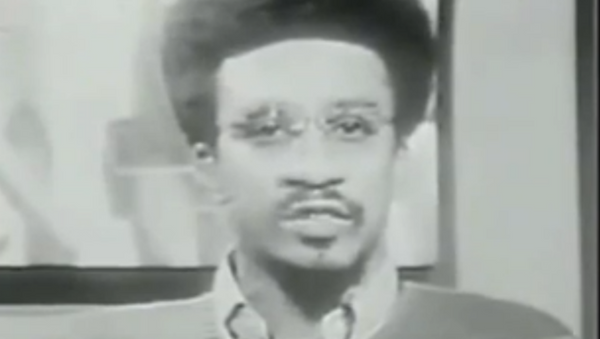Jamil al-Amin was the fifth chairman of the Student Nonviolent Coordinating Committee (SNCC) in the 1960s and a civil rights leader fighting for black rights. For more than 10 years, he has been serving a life sentence for a crime he did not commit. He was convicted in 2002 of murdering Georgia Deputy Ricky Kinchen and wounding another deputy, Aldranon English, during a gunfight in March 2000 in Atlanta’s West End neighborhood. Otis Jackson, who was the leader of the Almighty Vice Lord Nation street gang in Chicago, Illinois, however, has confessed multiple times to the crime for which al-Amin is currently in prison.
“Imam Jamil al-Amin, H. Rap Brown - he’s a former civil rights leader, and he converted to Islam in the late 70s and moved to the Atlanta, Georgia, area. He spent 30-plus years there developing his community in the West End, which is a downtown neighborhood in the Atlanta area, and it’s also where the incident happened that his case stems from,” Kairi al-Amin told hosts Eugene Puryear and Sean Blackmon.
Officers Kinchen and English went to the West End neighborhood in 2000 to serve Jamil al-Amin a warrant for not appearing in court for charges related to stealing a car and impersonating a police officer during a traffic stop.
According to English’s testimony, Jamil al-Amin fired a high-powered assault rifle at them when the officers attempted to arrest him. However, according to his legal team, which is currently appealing for a retrial, al-Amin, who was living in Atlanta as an imam, was targeted and convicted by the police for a crime he didn’t commit due to his activism and anti-establishment rhetoric.
“One of our biggest hurdles has been, no one is paying attention. What they’ve [the US government] wanted to do for the last 20 years is keep my father incarcerated in federal custody even though he’s a state prisoner. We’re trying to raise awareness and in raising awareness we realize that because we never got to tell our side of the story, even his supporters think he’s guilty. So, one of our other big hurdles is to prove innocence in the eyes of the public. If a murderer is in the back of your mind as well, then it kind of erases everything else,” Kairi al-Amin told Radio Sputnik, encouraging people interested in supporting his father to visit a website explaining his story.
In July, the 11th Circuit Court of Appeals found that Jamil al-Amin’s constitutional rights had been violated during the trial, but claimed the violation did not affect the trial’s verdict.


